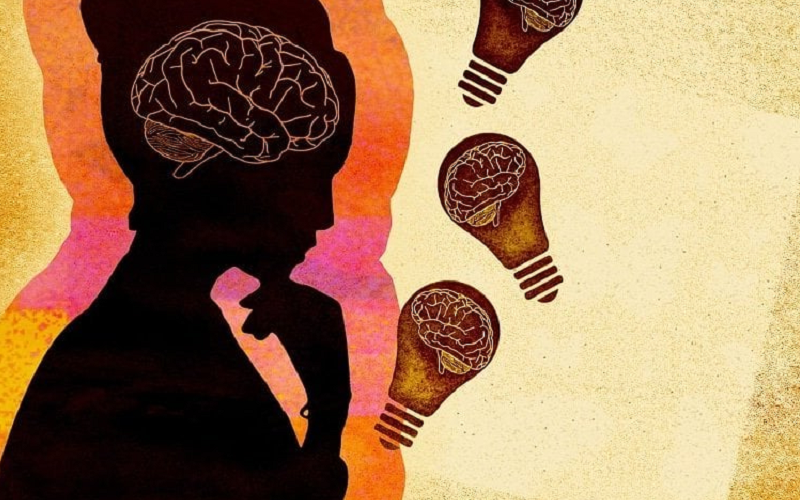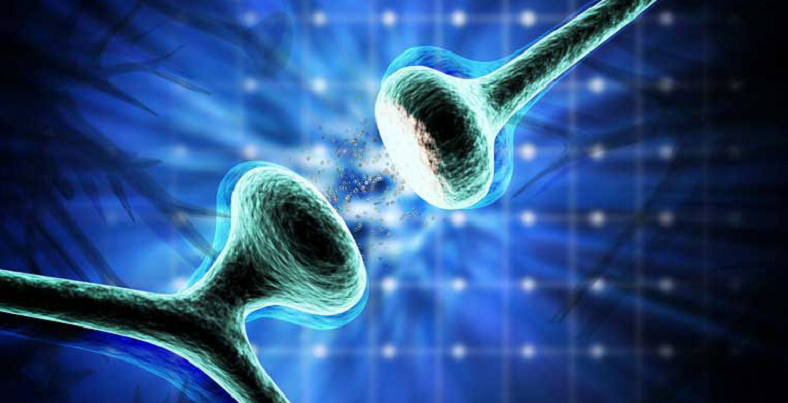
Memory is an essential aspect of our daily lives, allowing us to navigate the world, learn new skills, and maintain social connections. A powerful memory not only enhances our experiences but also has a significant impact on our overall well-being. With the ever-growing demands of modern life, it’s more important than ever to ensure our brains are functioning at their best. Here we delve into the fascinating science of memory and explore evidence-based techniques to help you harness your brain’s retention power.
Contents
Understanding Memory
Before diving into the techniques that can help improve memory retention, it’s crucial to understand the fundamentals of memory and how it functions. Memory is a cognitive process that allows us to store, retain, and retrieve information. It plays a vital role in learning, decision-making, and other mental activities.
Memory and Its Types
Memory can be divided into three main types: sensory memory, short-term memory, and long-term memory [1].
- Sensory memory: This is the shortest form of memory, lasting only a few seconds. It briefly holds information gathered from our five senses. For instance, after glancing at an object, an image of it lingers in our mind for a short while, which is an example of sensory memory.
- Short-term memory (STM): Also known as working memory, STM holds a limited amount of information for a short period, usually around 20-30 seconds. This type of memory is responsible for temporarily storing information while our brain processes it, like remembering a phone number just long enough to dial it.
- Long-term memory (LTM): This is our brain’s more permanent storage system, capable of holding vast amounts of information for extended periods, ranging from a few hours to a lifetime. LTM consists of different subtypes, including episodic (events and experiences), semantic (facts and concepts), and procedural (skills and habits) memory.
The Process of Memory Formation
The process of forming memories involves three key stages: encoding, storage, and retrieval [2].
- Encoding: This is the initial stage where our brain converts information into a format suitable for storage. The information can be encoded through visual, auditory, or semantic means. The depth of processing and the attention we give to the information determines how well it will be encoded.
- Storage: Once encoded, the information is stored in the brain, either in short-term or long-term memory, depending on various factors like repetition, the significance of the information, and our emotional state. The hippocampus, a region in the brain, plays a crucial role in consolidating and transferring information from STM to LTM.
- Retrieval: This is the process of accessing stored information when needed. The ease of retrieval depends on the strength of the memory trace, the cues available, and the level of interference from other memories. The more we practice recalling information, the stronger the memory trace becomes, making retrieval easier.

Factors Affecting Memory Retention
Memory retention can be influenced by a variety of factors, both internal and external. Understanding these factors can help us make better choices and create an environment conducive to optimal memory performance.
Role of Genetics, Age, and Lifestyle
Genetic factors can play a significant role in determining an individual’s memory capacity and cognitive function [3]. Some people might have a genetic predisposition for strong memory retention, while others may be more susceptible to age-related cognitive decline or memory-related disorders, such as Alzheimer’s disease.
As we age, our memory performance can naturally decline due to changes in brain structure and function. However, this decline is not inevitable, and various interventions, such as mental stimulation and a healthy lifestyle, can help maintain or even improve memory performance with age.
Our daily habits and lifestyle choices can also impact our memory retention. Factors such as stress, exercise, sleep, and nutrition can all influence our brain’s capacity to store and retrieve information.
Impact of Stress, Sleep, and Nutrition on Memory
Chronic stress can negatively affect memory retention by releasing stress hormones, such as cortisol, which can damage the hippocampus over time [4]. High stress levels can also impede the process of memory consolidation and hinder our ability to retrieve information when needed.
Adequate sleep is essential for optimal memory function, as it plays a vital role in memory consolidation. During sleep, the brain processes and consolidates the information acquired during the day, strengthening memory traces and facilitating the transfer of information from STM to LTM. Sleep deprivation can impair cognitive function and hinder memory performance.
A well-balanced diet is crucial for maintaining brain health and supporting memory function. Consuming essential nutrients, such as omega-3 fatty acids, antioxidants, and B vitamins, can help promote cognitive function, reduce inflammation, and protect the brain from oxidative stress.
Techniques to Improve Memory Retention
There are numerous evidence-based techniques that can help enhance memory retention. By incorporating these strategies into your daily life, you can improve your ability to encode, store, and retrieve information more effectively.
Mnemonic Devices
Mnemonic devices are memory aids that use patterns, associations, or imagery to help encode and recall information [5]. Some common mnemonic techniques include:
- Acronyms: Creating a word or phrase using the first letters of the items you want to remember. For example, to remember the order of operations in mathematics, you can use the acronym PEMDAS (Parentheses, Exponents, Multiplication, Division, Addition, Subtraction).
- Acrostics: Forming a sentence or phrase in which the first letter of each word corresponds to the items you want to remember. For instance, to recall the colors of the rainbow, you can use the acrostic “Roy G. Biv” (Red, Orange, Yellow, Green, Blue, Indigo, Violet).
- Method of loci: Also known as the memory palace technique, this method involves associating information with familiar locations or objects in a specific sequence. By mentally navigating through these locations, you can recall the information more easily.
- Peg-word system: This technique involves creating mental associations between items you want to remember and a set of pre-memorized “peg” words or numbers. For example, you could associate each item on a grocery list with a number and a corresponding rhyming word (e.g., one-bun, two-shoe).
Spaced Repetition
Spaced repetition is a learning technique that involves reviewing information at increasing intervals to improve memory retention [6]. The method is based on the spacing effect, which suggests that learning is more effective when spread out over time.
By reviewing information at optimal intervals, you can strengthen memory traces and consolidate the information more effectively. Spaced repetition helps prevent the natural decline of memory retention and reduces the amount of effort required to learn new material.
There are various tools and apps available, such as Anki and Quizlet, that can help you implement spaced repetition in your learning routine. These tools allow you to create flashcards and automatically schedule review sessions based on your performance and the optimal spacing intervals.
Chunking Information
Chunking is a technique that involves breaking down large pieces of information into smaller, more manageable units or “chunks [7].”
For example, instead of trying to remember a 10-digit phone number as a single sequence, you can break it down into smaller chunks (e.g., 555-123-4567). This makes it easier for your short-term memory to hold and process the information.
Chunking helps reduce the cognitive load on your short-term memory, allowing you to encode and store information more efficiently. By organizing information into meaningful groups or categories, you can also improve your ability to recall it later.
Active Recall
Active recall is a learning strategy that involves actively testing your memory to retrieve information, rather than passively reviewing or re-reading the material.
To practice active recall, you can use techniques like self-quizzing, summarizing information in your own words, or teaching the material to someone else. This forces your brain to actively search for and retrieve the information from your memory.
Research has shown that active recall is more effective for memory retention than passive review methods [8]. By repeatedly retrieving information from memory, you strengthen the memory trace and make it more accessible in the future. This process not only improves long-term retention but also enhances your ability to apply the information in different contexts.
Visualization and Association
Visualization and association techniques involve creating mental images or connecting new information to familiar concepts to improve memory retention [9].
By creating vivid and engaging mental images, you can make abstract or complex information more concrete and memorable. Visualization engages multiple areas of the brain, which helps reinforce memory connections and makes the information easier to recall later.
Association techniques involve linking new information to existing knowledge or experiences, making it more meaningful and easier to remember. For example, if you’re learning a new language, you can associate new vocabulary words with similar-sounding words or phrases in your native language.

Nutritional Supplements That Improve Your Brain’s Retention Power
While a well-balanced diet is the best way to obtain essential nutrients for brain health and memory retention, certain nutritional supplements have been studied for their potential effects on cognitive function. Some of the supplements thought to improve memory and cognitive performance are listed here.
Ginkgo Biloba
Ginkgo biloba, an ancient tree species native to China, has long been used in traditional medicine to treat various ailments. The extract from its leaves is thought to have potential benefits for memory and cognitive function [10]. Here are some ways in which Ginkgo biloba might improve brain retention power:
- Increased blood flow: Ginkgo biloba is believed to have vasodilatory properties, which means it can help dilate blood vessels and improve blood flow, particularly in the brain. Enhanced blood circulation ensures that the brain receives adequate oxygen and nutrients, which are essential for optimal cognitive function and memory performance.
- Antioxidant properties: Ginkgo biloba contains potent antioxidants, such as flavonoids and terpenoids, that can neutralize free radicals and reduce oxidative stress in the brain. Oxidative stress has been implicated in age-related cognitive decline and various neurodegenerative disorders. By protecting brain cells from oxidative damage, Ginkgo biloba may help maintain memory function and overall brain health.
- Neuroprotective effects: Some studies suggest that Ginkgo biloba may have neuroprotective properties, meaning it can help protect brain cells from damage caused by various factors, such as inflammation or toxic substances. These neuroprotective effects may contribute to the maintenance of cognitive function and memory performance.
- Modulation of neurotransmitters: Ginkgo biloba may also influence the levels of certain neurotransmitters, such as dopamine, norepinephrine, and acetylcholine, which are involved in various cognitive processes, including memory formation and retrieval. By modulating neurotransmitter levels, Ginkgo biloba might have a positive impact on memory and cognitive function.
Bacopa Monnieri
Bacopa monnieri, also known as Brahmi, is a perennial herb native to India and has been traditionally used in Ayurvedic medicine to enhance memory and cognitive function. Research suggests that Bacopa monnieri might improve brain retention power through several mechanisms [11]:
- Antioxidant properties: Bacopa monnieri contains powerful antioxidants, such as bacosides, which help combat oxidative stress in the brain. Oxidative stress is associated with age-related cognitive decline and neurodegenerative disorders. By neutralizing free radicals and protecting brain cells from oxidative damage, Bacopa monnieri may contribute to the preservation of memory and cognitive function.
- Modulation of neurotransmitters: Bacopa monnieri is believed to influence the levels and activity of various neurotransmitters, such as acetylcholine, dopamine, and serotonin. These neurotransmitters play crucial roles in cognitive processes, including memory formation, learning, and mood regulation. By modulating neurotransmitter levels, Bacopa monnieri may have a positive impact on memory and cognitive function.
- Enhancement of synaptic communication: Bacopa monnieri has been shown to promote the growth and differentiation of nerve cells, as well as improve synaptic communication. This enhanced neuronal communication may lead to improved memory formation and retrieval.
- Adaptogenic properties: Bacopa monnieri is considered an adaptogen, which means it may help the body adapt to stress and maintain homeostasis. Chronic stress can negatively impact memory and cognitive function. By reducing the physiological and psychological effects of stress, Bacopa monnieri may contribute to better memory performance and overall cognitive health.
- Neuroprotective effects: Some studies suggest that Bacopa monnieri may have neuroprotective properties, which can help protect brain cells from damage caused by various factors, such as inflammation or toxic substances. These neuroprotective effects may help maintain cognitive function and memory performance.
Phosphatidylserine
Phosphatidylserine is a phospholipid naturally found in cell membranes, particularly in the brain. It plays a critical role in maintaining cell membrane integrity and supporting neuronal communication. Research suggests that phosphatidylserine supplementation might improve brain retention power through several mechanisms [12]:
- Cell membrane fluidity: Phosphatidylserine is an essential component of cell membranes and helps maintain their fluidity, which is crucial for proper cellular function. Optimal cell membrane fluidity allows for efficient transport of nutrients, waste products, and communication signals between cells, all of which are necessary for cognitive function and memory.
- Neurotransmitter production and release: Phosphatidylserine is involved in the synthesis and release of neurotransmitters, such as acetylcholine and dopamine. These neurotransmitters play a vital role in various cognitive processes, including memory formation, learning, attention, and mood regulation. By supporting neurotransmitter production and release, phosphatidylserine may have a positive impact on memory and cognitive function.
- Glucose metabolism: Phosphatidylserine plays a role in glucose metabolism in the brain. Glucose is the primary energy source for the brain, and efficient glucose metabolism is essential for optimal cognitive function. By supporting glucose metabolism, phosphatidylserine may contribute to improved brain function and memory performance.
- Neuroprotection: Some studies suggest that phosphatidylserine has neuroprotective properties, which can help protect brain cells from damage caused by various factors such as oxidative stress, inflammation, and aging. By preserving brain cell health and function, phosphatidylserine may help maintain memory performance and overall cognitive health.
Acetyl-L-carnitine
Acetyl-L-carnitine (ALC or ALCAR) is an amino acid derivative naturally found in the body. It plays a crucial role in cellular energy production and helps in the synthesis of the neurotransmitter acetylcholine, which is involved in memory formation. Research suggests that Acetyl-L-carnitine might improve brain retention power through several mechanisms [13]:
- Energy production: ALCAR facilitates the transport of fatty acids into the mitochondria, where they are converted into energy. By supporting cellular energy production, ALCAR may help maintain optimal brain function and memory performance, particularly in situations where energy demands are high or when the brain’s energy metabolism is compromised.
- Neurotransmitter synthesis: ALCAR is involved in the production of acetylcholine, an essential neurotransmitter for memory formation and other cognitive processes. By supporting acetylcholine synthesis, ALCAR may have a positive impact on memory and cognitive function.
- Antioxidant properties: ALCAR has been shown to have antioxidant properties, which can help neutralize free radicals and reduce oxidative stress in the brain. Oxidative stress has been implicated in age-related cognitive decline and various neurodegenerative disorders. By protecting brain cells from oxidative damage, ALCAR may contribute to the preservation of memory and cognitive function.
- Neuroprotection: Some studies suggest that ALCAR may have neuroprotective effects, helping protect brain cells from damage caused by various factors, such as inflammation, toxins, or aging. These neuroprotective effects may help maintain cognitive function and memory performance.
- Neuroplasticity support: ALCAR may also support neuroplasticity, the brain’s ability to adapt and reorganize itself in response to new experiences, learning, and challenges. By enhancing neuroplasticity, ALCAR may contribute to improved memory retention and overall cognitive function.

Lifestyle Changes to Enhance Memory Retention
While incorporating memory-enhancing techniques and supplements can help improve your brain’s retention power, adopting certain lifestyle changes can further enhance your memory and overall cognitive function. Here are some key lifestyle changes you can make to support memory retention:
Regular Exercise
Engaging in regular physical activity has been shown to promote brain health and improve cognitive function, including memory. Exercise increases blood flow to the brain, delivering essential nutrients and oxygen while also promoting the growth of new neurons and the release of brain-derived neurotrophic factor (BDNF), a protein that supports brain plasticity and learning.
Aim for at least 150 minutes of moderate-intensity aerobic exercise or 75 minutes of vigorous-intensity aerobic exercise per week, along with strength training activities on two or more days per week.
Adequate Sleep
Sleep plays a crucial role in memory consolidation, the process by which short-term memories are converted into long-term memories. During sleep, the brain strengthens neural connections and eliminates unnecessary information, which helps enhance memory retention and overall cognitive function.
Maintain a consistent sleep schedule, create a relaxing bedtime routine, keep your sleep environment comfortable and free of distractions, and limit exposure to screens and stimulants before bedtime.
Healthy Diet
Consuming a well-balanced diet rich in fruits, vegetables, whole grains, lean proteins, and healthy fats can provide essential nutrients to support optimal brain function and memory performance. Certain nutrients, such as omega-3 fatty acids, antioxidants, and B vitamins, are particularly important for brain health.
Consider adopting dietary patterns like the Mediterranean diet or the MIND diet, which focus on nutrient-dense, brain-healthy foods and have been linked to improved cognitive function and reduced risk of cognitive decline.
Stress Management
Chronic stress can negatively affect memory and cognitive function by impairing the hippocampus, a brain region crucial for memory formation. Prolonged stress also elevates cortisol levels, which can interfere with learning and memory processes.
Practice mindfulness meditation, engage in relaxation exercises, such as deep breathing or progressive muscle relaxation, and pursue hobbies or activities that bring joy and relaxation.
Cognitive Stimulation
Challenging your brain with new and varied activities can help maintain cognitive function and memory performance. Cognitive stimulation encourages the growth of new neurons and strengthens neural connections, which can enhance memory retention and overall brain health.
Participate in activities that require mental effort, such as learning a new language, playing musical instruments, solving puzzles, or engaging in social activities that involve intellectual discussions.
References
[1] The Three Types of Memory
[2] Memory (Encoding, Storage, Retrieval)
[3] Genetic influence on cognitive development between childhood and adulthood
[4] Effects of Stress on Memory and the Hippocampus
[5] Mnemonic Devices: Types, Examples, and Benefits
[6] Enhancing human learning via spaced repetition optimization
[7] Understanding the Early Warning Signs of Cognitive Decline and How to Prevent It
[8] Active Recall – How to Use This Effective Study Technique
[9]
How to Use Visualization and Association for Better Memory
[10] Examining Brain-Cognition Effects of Ginkgo Biloba Extract
[11] Effects of 12-Week Bacopa monnieri Consumption on Attention, Cognitive Processing, Working Memory, and Functions
[12] The Effects Of Phosphatidylserine On Reaction Time And Cognitive Function
[13] Acetyl-L-Carnitine: Metabolism and
Applications in Clinical Practice

